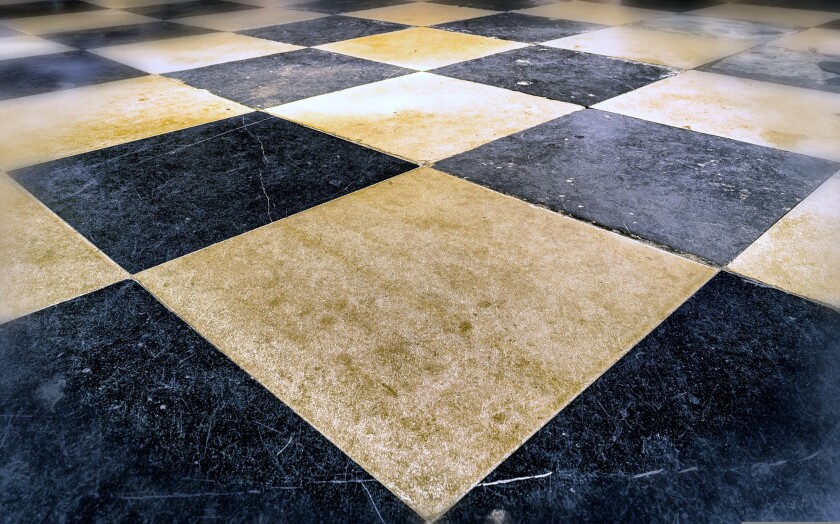Criticism and scrutiny of evidence of use has long been a bane of trademark owners struggling to secure registration of an inherently non-distinctive mark by relying on acquired distinctiveness through use. The manner and presentation of use in the marketplace is often held not to gel with the scope and form of the application for registration.
This article illustrates an instance where evidence of use found favour with the Singapore Trademarks Registry; namely, a registration being secured In the matter of a trademark application by Floor Xpert [2022] SGIPOS 9 (the ‘Floor Xpert decision’). The decision provides perspective and guidance to trademark owners and practitioners called upon to assist them in a similar endeavour.
Background
Floor Xpert (the ‘Applicant’) applied to register the ‘Floor Xpert’ mark in Class 37, covering services relating to floor maintenance and repair, among others.
The examiner, in the first instance, objected to the application on the basis that the average consumer is likely to perceive the mark as a laudatory phrase (i.e., that the Applicant possesses the knowledge and skills to provide quality floor-related services), rather than as a badge of origin.
The Applicant responded to the first examination report by adducing evidence that the mark had acquired distinctiveness through use, in the form of a statutory declaration by the Applicant’s sole director. However, in the second examination report, the examiner was of the view that the evidence was deficient.
After further rounds of written submissions, and maintained objections from the examiner, the Applicant requested an ex parte hearing before the registrar to advance its oral and written submissions.
The Registry’s decision
After considering the totality of the evidence adduced, the principal assistant registrar (PAR) held that the ‘Floor Xpert' mark had acquired sufficient distinctiveness through use to qualify for registration as a trade mark.
The following key points were made in the PAR’s judgment.
Use of the Applicant’s company name, and the Applicant’s social media and domain names
The PAR accepted evidence of promotional activities under the Applicant’s corporate identity, Floor Xpert Pte. Ltd., as use of the application mark ‘Floor Xpert’.
It was noted that the use of “Floor Xpert Pte. Ltd.” would indicate that the Applicant is a company known as Floor Xpert, given that the public in Singapore would recognise “Pte. Ltd.” as a reference to a company.
Similarly, evidence of the Applicant’s promotional materials published under its social media handle, @FloorXpert, and on its website, www.floorxpert.com, were accepted as appropriate evidence pointing towards use of the ‘Floor Xpert’ mark.
In this regard, the PAR noted that the words “Floor” and “Xpert” were combined, as domain names and social media handles do not permit blank spaces.
Furthermore, the Applicant had taken constant active steps to target and engage Singapore-based actual and potential customers in connection with its domain name and social media handle. In particular, the Applicant had provided evidence of:
Its expenditure on Facebook advertising and search engine advertising; and
The resultant increases in the reach of its Facebook advertisements (for example, increased Facebook interactions), and the increased clicks on, and views of, its website.
Overall, the PAR concluded that the evidence above indicated use of the ‘Floor Xpert’ mark as a badge of trade origin.
Evidence that no other trader was using the name “Floor Xpert”
Significant weight was given by the PAR in respect of the evidence suggesting that the Applicant was the only trader in the marketplace using the “Floor Xpert” name.
The following pieces of evidence were highlighted by the PAR, in recognition of this:
Evidence of the Applicant’s features in local English and Chinese television programmes, by reference to “Floor Xpert”; and
Extracts from internet forum posts and blog posts by internet users, which provided reviews of, or references to, “floorxpert” and “Floor Xpert”.
It was also noted that the blog post mentioned above had received “some level of engagement”, as reflected by the post’s 48 likes and 29 comments.
Crucially, the evidence above demonstrated that the Applicant was identified as “Floor Xpert” by its customers “without triggering confusion as to trade source”, notwithstanding the possible laudatory and/or descriptive meanings of the ‘Floor Xpert’ mark.
Overall, based on the Applicant’s evidence of use, which spanned eight years leading up to the date of application for the ‘Floor Xpert’ mark, the PAR was satisfied that the ‘Floor Xpert’ mark had acquired distinctiveness through its usage, and should therefore be accepted for registration.
Concluding thoughts
Evidence of use from consumers
In the Floor Xpert decision, the PAR appeared to acknowledge that apart from the usual types of evidence provided by the applicant (for example, advertising expenditure and promotional materials), evidence of use showing use of the mark by consumers would also be acceptable. Such evidence could be in the form of blog posts, social media posts, or forum entries, and would show that consumers are able to identify the mark with a particular trader’s goods or services.
Use of the trademark in the format it is applied for
The Floor Xpert decision also suggests that the use of company names, domain names, and social media handles could be relevant as evidence of use of a plain word mark to establish acquired distinctiveness through use.
In situations where a large portion of evidence relates to use of a stylised depiction of the mark (which would be unlikely to be accepted by the registrar as use of the equivalent plain word mark), the ability to rely on the evidence above would be useful to the applicant.
A common-sense approach
Ultimately, the PAR took “an approach consistent with common-sense and marketplace realities, having regard to the perception of the relevant public for the goods and services”. However, this approach is “highly fact specific”, where each mark must be assessed on a case-by-case basis.
Furthermore, although the examiner’s objections were reversed, the PAR defended the examiner’s decisions, noting that “it is right and prudent for trade mark examiners to treat any alleged evidence of use… with a healthy dose of caution”.
As such, we are unlikely to see any drastic change in the Registry’s overall examination stance in assessing evidence of use.
Nevertheless, this decision suggests a more receptive posture towards a holistic consideration of a trademark owner’s evidence of use of its mark, including use as a corporate name as well as other activities referencing the mark. Such activities should, however, be tied to the trademark owner’s goods/services for which registration is sought, such that these activities go beyond mere ‘internet presence’ or ‘directional references’, but reflect an indication of trade origin.













